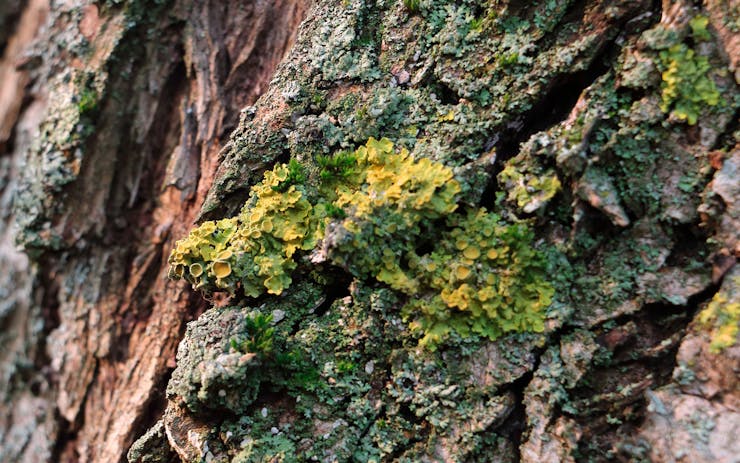Cannabis is an incredibly unique plant in the world of botany, standing apart from all others with untouchable individuality—at least until now.
An unassuming rare moss has been making waves due to possessing properties similar to those of THC, and while it may not be a contender for the title Most Beloved Plant, it has certainly been getting attention.Searching for the Real Deal?Liverwort is a moss with several genera, and recently, one such genus, Radula, was discovered to produce a chemical called perrottetinene (PET) that is similar to tetrahydrocannabinol (THC).
This isn’t the first discovery of PET—that goes to Japanese phytochemist Yoshinori Asakawa in 1994. However, this is the first time that the similarities between PET and THC have been studied and explored.
Similarities of PET and THC
Researchers found that synthesized forms of PET bound to the same brain receptors as THC and activated cannabinoid receptors CB1 and CB2. However, PET was observed to be less potent than THC with much weaker psychoactive potential. Regardless, researchers noted similar effects to THC when tested on mice, such as lowered body temperature and slower movements.
Scientists are currently exploring the potential of using synthesized forms of PET for medicinal purposes.
They also found that PET helped reduce inflammation on molecules known as prostaglandins (which THC does not affect). In fact, researchers see potential for PET to be more effective at combating inflammation than the cannabinoids in cannabis.
In an article for Scientific American, researcher Michael Schafroth stated, “These prostaglandins are involved in many processes (such as) memory loss, neuroinflammation, hair loss and vasoconstriction. [PET is] highly interesting for medicinal applications, as we can expect fewer adverse effects while still having pharmacologically important effects.”
As a result, current research suggests the moss will be far more popular with medicinal users than recreational.
The Future of Plant Based Medicine
Director of Research and Development for International Cannabis and Cannabinoids Institute (ICCI) and neurologist, Ethan Russo, explained in an article for Forbes that, “perrottetinene differs from THC in a key way that makes it potentially useful medically, in that it reduces levels of prostaglandins D2 and E2 in the brain without producing COX inhibition, and thus may provide an effective anti-inflammatory and pain killer with a low risk of intoxication, formation of ulcers, or production of heart attacks or strokes.”
So where does this moss come from and how does one acquire it? For starters, the plant is only grown in New Zealand, Costa Rica, and Japan, and for those thinking they’d like to bring it to North America, you may want to think again.
The plant doesn’t reproduce from seeds, meaning cultivation is an intensive and challenging process. As a result, scientists are currently exploring the potential of using synthesized forms of PET for medicinal purposes.
As it stands, current research into the effects of PET suggest that it won’t be a contender for replacing cannabis in people’s hearts and minds. It simply isn’t potent enough. However, it is likely to carve out a niche of its own in the world of medicinal plants, while also being the first plant to stand side-by-side with cannabis in terms of cannabinoid plant medicine—and that is truly a wonder.
Find cannabis nearby. Search dispensaries with Leafly finder.
As lead researcher Jürg Gertsch stated in a press release, “It’s astonishing that only two species of plants, separated by 300 million years of evolution, produce psychoactive cannabinoids.”





